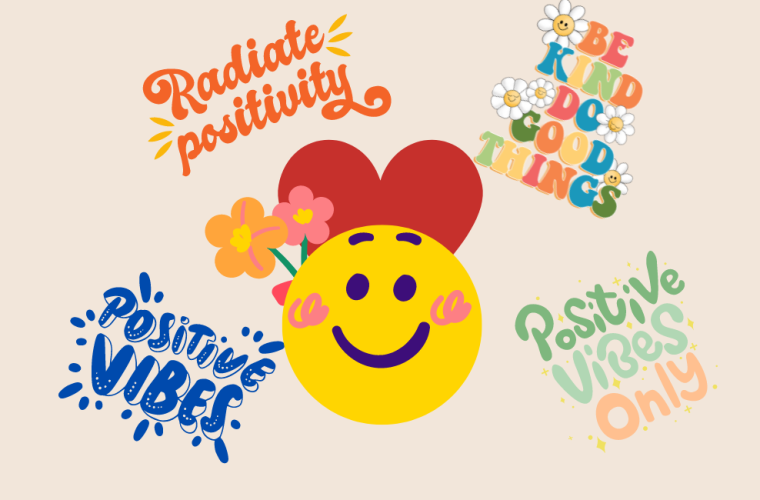Editorial note: On the Journey is a mental health publication authored by Begum Uyumaz, practitioner on the therapy platform It’s Complicated. The original article can be read here.
For decades, we have focused on what is wrong, but is this really healthy. Of course traumas needs to be solved, however, too much thinking and talking about negative events might poison our brain and push us into a downward spiral. Recent approaches recognized this and found methodologies to focus on the positives. As a discipline, positive psychotherapy (PPT), focuses on wellbeing, helps people to focus on their strengths instead of problems. There is more emphasis on positive character strengths and what is meaning for a person.
Although it might give the impression that PPT is about positives, distressing experiences are tackled with genuine regard.
What is the application and effectiveness of PPT?
Research shows that positive psychotherapy can be effective in a wide variety of conditions, particularly for emotional growth and the desire for self-development. It can also be effective for specific goals and values, low self-esteem, chronic stress and burnout. Collaborative therapeutic relationships are quite important to progress in PPT. There is also evidence that PPT is effective in treating depression, borderline personality disorder, post-traumatic stress disorder, and addiction. However, in serious psychiatric conditions, it is important to combine multiple approaches for effectivity.
The Structure of Positive Psychotherapy
Tayyab Rashid and Martin Seligman describes a clear structure in their workbook, Positive Psychotherapy.

Introduction and Gratitude Journal: Clients are introduced to positive psychotherapy and a gratitude journal. The therapist will explain how a gratitude journal is effective in boosting happiness.
Character and signature strengths: In this session, character strengths are introduced and, through practice, shown how they can contribute to personal growth.
Practical Wisdom: In this session, it will teach the client to apply their signature strengths to solve problems. It will teach you how to apply practical wisdom to resolve conflicts.
Better version: In this session, the client will develop specific, measurable and achievable goals.
Processing memories: In this session, positive and negative memories are recalled, and negative ones are processed in a healthy way.
Forgiveness: In this session, the client learns about forgiveness. They are asked to write a forgiveness letter but do not deliver it.
Maximizing vs Satisfying: The client learns about maximizing and satisfying. In other words, they will draft a plan listing the best possible and good enough choices.
Gratitude: In this session, the client recalls people who did something positive to them and never thanked about this. Click to learn more about practicing gratitude.
Hope and optimism: In this session, the client sees the best possible outcomes and learn to develop a sense of hope.
Post-traumatic growth: In this session, the client explores deep feelings and thoughts about traumatic experiences that still influence them.
Slowness and savoring: The client is guided to slow down, discussed with the therapist a technique is developed to fit personality and life circumstances.
Positive relationship: The client recognizes the strengths of loved ones. The strengths are plotted on paper and ways of enriching relationships are discussed.
Positive communication: The clients are encouraged to respond into news that predict relationship satisfaction.
Altruism: Doing something meaningful that shows your signature strengths. Meaning and purpose: The client is discussed what is meaningful for them.

Can self-help methods be effective to apply PPT?
We live in the information era. The information is available in a wide variety of ways. Research shows that clients might prefer alternative self-help methods because of cost-effectivity, flexibility and accessibility. Just like any other psychotherapy method, PPT can be effective to some extent. The ideal is to apply with a mental health professional who is trained in the topic.
Gratitude, forgiveness and empathy can be practiced standalone, however reframing thoughts might need further guidance because an external perception might be necessary to provide awareness. It’s Complicated is a great platform to find a professional help that is aligned with your budget.
A typical positive psychotherapy session?
The session starts with relaxation practice and gratitude journal, then core concepts are discussed. Then previous session will be reviewed and in-session practice comes.
Typical questions that are addressed in a positive psychotherapy session are;
- Name recent experiences that you particularly felt positive or successful?
- What activities or experiences makes you feel joy and sense of fulfillment?
- How can you set new, achievable goals that are aligned with your interest?
- How can you apply strengths to overcome or manage challenges?
- What positive challenges have you noticed in yourself since starting the therapy?
- What are three things in your life that gives you joy and happiness?
In conclusion
Positive psychotherapy is a recent movement that is developed to balance the negativity of the content and help people to be aware of their strengths and focus more on the positivities instead of the negativities. The present article provides an overview of positive psychology which is focused on exploring positive experiences, setting actionable goals, building resilience, maintaining optimism, exploring positive experiences and recognizing strengths.
Advantages of Discovering Your Therapist via It’s Complicated
- No Setup Costs: Creating an account and reaching out to therapists is entirely cost-free.
- Transparent Pricing: You’ll only pay the session fee, with no concealed booking fees.
- Precise Search: Utilise our robust search tool to pinpoint therapists based on your specific preferences.
- Thorough Listings: Easily explore therapists categorised by their specialty, approach, location, and language.
It’s Complicated is a therapy platform that not only helps clients find their perfect therapist but also supports therapists in their craft of helping others. Featuring over 2,000 mental health professionals from 80+ countries, counselling is available in almost 100 languages, both online and in person. A GDPR-compliant video solution, encrypted messaging, and easy invoicing guarantee a private and seamless counselling experience for therapists and clients alike. If you are in a serious crisis and need urgent help, please use one of these resources instead.
